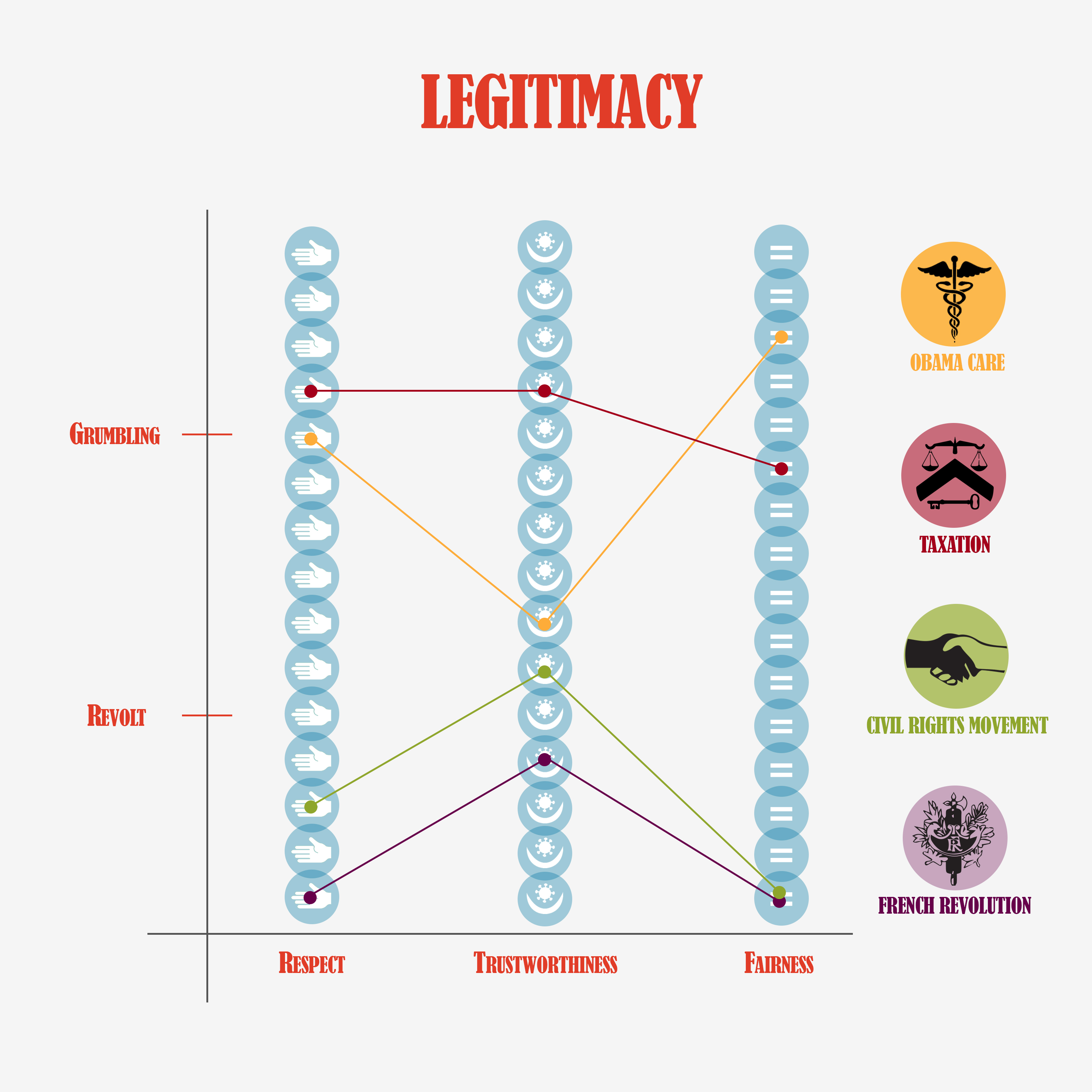Angry people take radical action. Malcolm Gladwell, in his book David and Goliath, tells a couple of stories to this effect.
People need to feel that those in power over them are exercising that power legitimately. If the powers that be are perceived to be illegitimate, people will—eventually—rise up and cast those powers down.
There are three components of this legitimacy. First, people must feel respected. They must feel as though they have a voice, that they are heard, that their concerns are acknowledged and taken seriously and that efforts are made to redress wrongdoing.
Second, people must feel as though the powers are trustworthy, meaning those in power must act consistently with their promises and prove themselves reliable, constant, and predictable.
Finally, people must feel that the powers treat them fairly. The rich cannot be given preference, nor people of a particular color or educational background. The ground must be kept level.
If those with power fail in any one of these areas, the result will be grumbling, turmoil, misbehavior, etc. If, however, those in power fail in all of these areas for a long time, the result will inevitably be anger.
And angry people take drastic action. Like revolt. Like uprising. Like coup.
Certainly this has an application in church ministry. Primarily, we want to make sure we have good answers to the following questions.
- How can we create feedback loops that let our own people know they matter, they’re needed, and they’re heard?
- What checks/balances can we establish—that cannot be bypassed—to ensure we live and speak and work in line with our convictions?
- What litmus tests will we employ to measure our equitable treatment of every person before God?
fossores
Related posts
Categories
Category Cloud
Tag Cloud
Recent Posts
- Victors and Victims November 6, 2018
- 3 Hacks for Happiness October 29, 2018
- Hope Against Death September 20, 2018
- The Shape Of The Cross September 19, 2018


